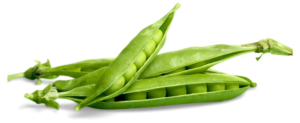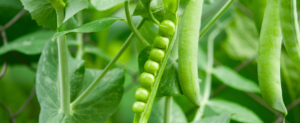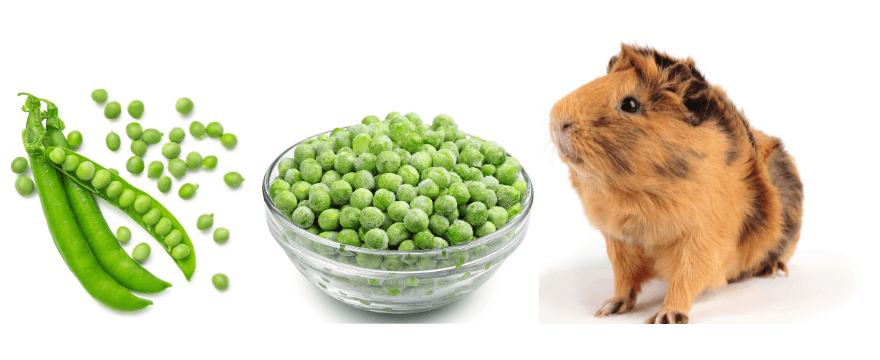I know I have! Those big, curious eyes are irresistible, particularly when coupled with those endearing little squeaks. Before you start sharing your cheddar, it’s essential to understand if guinea pigs can eat cheese.
The response may catch you off guard, and it’s certainly not as straightforward as a simple “yes” or “no.” Let’s explore guinea pig nutrition and determine if cheese is a suitable option for our furry companions. We will find the science behind their dietary requirements, address your pressing cheese-related inquiries, and offer nutritious alternatives that your guinea pig will surely enjoy.
Health Benefits of Peas for Guinea Pigs 
Peas are good for guinea pigs’ health in many ways. Peas, rich in vitamin C, help little pets stay healthy. Guinea pigs need vitamin C since they cannot generate it. Peas include fiber, which aids digestion and prevents GI disorders. They are also rich in vitamin K, which aids blood clotting and bone health. Due to their sugar content, peas should be eaten in moderation to avoid obesity. Overall, peas can help guinea pigs eat well and stay healthy.
- High Fiber Content: Peas contain a good amount of dietary fiber, which helps support proper digestion and can prevent stomach problems.
- Protein Source: Peas are a great plant-based protein source that helps with muscle maintenance and growth in guinea pigs.
- Essential Nutrients: The vitamins and minerals found in peas help support guinea pigs’ overall health and vitality.
Nutritional Value of Peas
Peas contain essential nutrients that are vital to the health of guinea pigs.
They offer:
- Macronutrients: such as carbohydrates, provide energy, protein helps with muscle maintenance, and fiber supports digestive health.
- Micronutrients: Essential nutrients include vitamin C, vitamin K, and B vitamins, as well as minerals such as potassium, magnesium, and iron.
- Comparison: When comparing peas to other common guinea pig foods, peas provide a well-rounded selection of nutrients essential for their overall health.
Potential Risks of Feeding Peas to Guinea Pigs 
Giving peas to guinea pigs may result in weight gain because of their high sugar content. Excessive consumption can lead to digestive problems such as bloating or diarrhea. Certain guinea pigs may have allergies, so monitoring them closely when introducing peas into their diet is important.
Sugar Content:
Overindulging in peas, especially for young guinea pigs, can lead to obesity because of their high sugar levels.
Digestive Issues:
Certain guinea pigs might encounter gas, bloating, or diarrhea when given peas in excessive amounts or without a gradual introduction.
Allergies and Sensitivities:
Just like any food, peas have the potential to cause allergic reactions or sensitivities in some guinea pigs.
How to Safely Feed Peas to Guinea Pigs 
Guinea pigs can easily eat peas, but only a small amount at a time, to keep them from getting fat. Peas should be introduced slowly to avoid gastric distress. Check for allergies and side effects. Make sure peas are fresh and clean; ask a vet.
- Moderation: Consider giving peas as an occasional snack instead of a regular part of the guinea pig’s meals, making sure they make up at most 10% of their diet.
- Preparation Methods: Peas can be fresh, frozen, or cooked without additional seasonings or oils.
- Gradual Introduction: Slowly include peas into the diet to monitor for adverse reactions.
- Veterinary Insights: Seek advice from veterinarians or experts in guinea pig care for customized feeding suggestions.
- Avoiding Common Mistakes: Gain insights from professionals on typical errors to steer clear of when adding peas to guinea pig diets.
- Balanced Diet Tips: Get advice on incorporating peas into a well-rounded diet for your guinea pig.
FAQs About Guinea Pigs and Peas:
Suitability for All Guinea Pigs: Find out if it’s safe for all guinea pigs to eat peas.
Feeding Frequency: Discover the ideal frequency for incorporating peas into a guinea pig’s diet while ensuring their well-being.
Addressing Intolerance: Learn what to do if your guinea pig shows intolerance or allergic reactions to peas.
As we conclude our investigation into guinea pig dietary options, it’s time to ponder what we’ve discovered about the query, “Are peas safe for guinea pigs to eat?”
For a guinea pig to stay happy and healthy, providing a balanced diet with fresh vegetables, hay, and pellets is essential. Remember to always prioritize your guinea pig’s health, whether adding a few peas to their food bowl or giving them as a hand-fed treat.

Leave a Reply